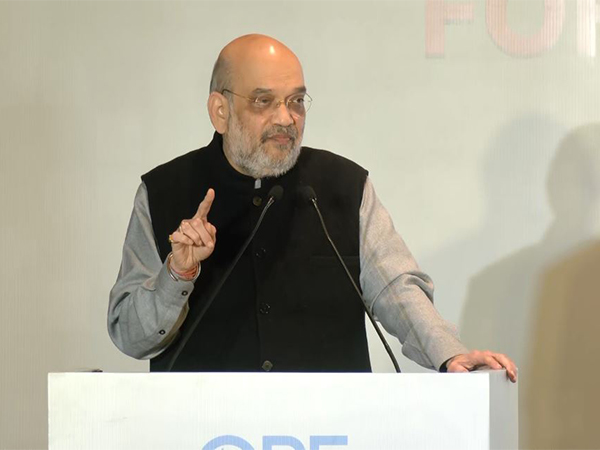In a major development, Union Home Minister Amit Shah on Tuesday announced that the government has planned to construct a fence along the entire 1,643-kilometer-long Indo-Myanmar border. The primary aim is to enhance surveillance capabilities and establish a patrol track along the border for effective monitoring.
Govt’s dedication to strengthen National borders
Highlighting Prime Minister Narendra Modi government’s dedication to fortify national borders, Shah announced that the government has chosen to erect a fence along the entire India-Myanmar border.
“The Modi government is committed to building impenetrable borders.It has decided to construct a fence along the entire 1643- kilometer-long Indo-Myanmar border. To facilitate better surveillance, a patrol track along the border will also be paved,” Home Minister posted on X.
Current progress and future plans
A 10-kilometer stretch in Moreh, Manipur, has already been successfully fenced out of the total border length, according to the Home Minister.
Furthermore, Shah highlighted that two pilot projects involving a Hybrid Surveillance System (HSS) are underway, with a planned fencing stretch of 1 km each in Arunachal Pradesh and Manipur.
“Additionally, fence works covering approximately 20 km in Manipur have also been approved, and the work will start soon,” Shah said.
FMR
In addressing concerns related to the Free Movement Regime (FMR) with Myanmar, officials have indicated that the government is contemplating its termination. The move is intended to curb the influx of illegal migrants and insurgents and address issues raised by local residents regarding the misuse of the FMR policy, leading to “illegal immigration, drug, and arms trafficking.”
The 1,643-km-long India- Myanmar border, spanning Mizoram, Manipur, Nagaland, and Arunachal Pradesh, currently operates under the FMR, which permits individuals living near the India-Myanmar border to travel 16 km into each other’s territories without a visa. Initiated in 2018, the FMR policy was a component of India’s Act East policy.
As per FMR policy, those belonging to the hill tribes, being citizens of either India or Myanmar and residing within a 16 km radius on either side of the border, can cross with a border pass valid for one year, allowing a stay of up to two weeks per visit.
“We plan to terminate the FMR along the Indo-Myanmar border shortly. Our aim is to install fencing along the entire border, a project expected to be completed in the next four- and-a-half years. Individuals entering will be required to obtain a visa,” stated an official privy to the plan being prepared by the Ministry of Home Affairs.
“The objective is not only to halt the misuse of the FMR, which insurgent groups exploit for attacks on the Indian side before escaping to Myanmar, but also to stop the inflow of illegal immigrants and disrupt networks involved in drug and gold smuggling”, the official added.
Border security measures
As per an official, the tendering process for an advanced smart fencing system covering 300 km of the India-Myanmar border is already underway. The implementation of the project is expected to commence shortly, reflecting the government’s commitment to deploying modern technology for robust border security.
Concerns following Myanmar’s military coup
Allegations have emerged, linking the FMR policy to increased illegal activities, particularly following the military coup in Myanmar in February 2021. Misuse of the FMR by insurgent groups, combined with an influx of Myanmar’s tribal population into India, has prompted calls for a thorough review of the policy.
In September 2023, Manipur Chief Minister N Biren Singh appealed to the Centre to terminate the FMR, citing misuse by insurgents. Manipur shares approximately 390 km of a porous border with Myanmar, with only about 10 km currently fenced. Mizoram, with a porous 510-kilometer border, has seen an influx of anti-Junta rebels since the coup.
State-specific border challenges
Manipur Chief Minister highlighted incidents where individuals from Myanmar attempted to enter the state but retreated upon encountering a substantial presence of security personnel.
Manipur shares a 398-kilometer border with Myanmar. Arunachal Pradesh shares a 520-kilometer border, and Nagaland’s border with Myanmar spans 215 kilometers.














